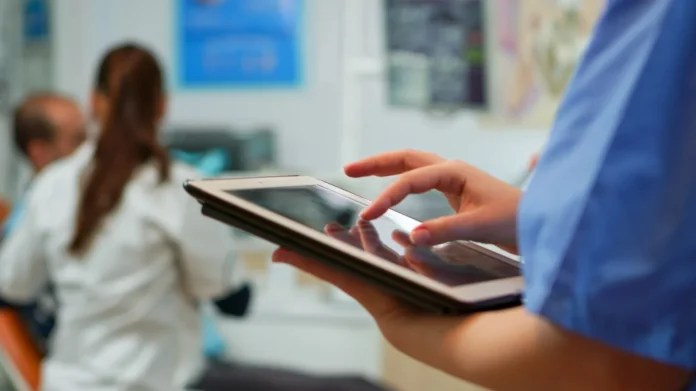Technology is revolutionizing the healthcare industry by enabling physicians to provide a better and more precise method of treating patients. Medical technology is enhancing how medical practitioners diagnose, treat, and manage illness. These technologies not only improve patient outcomes but also maximize efficiencies for physicians. The medical technology innovation online brings medicine closer and more precise in the future.
Here, in this article, we’re discussing how doctors are employing technology so that they can take even better care of their patients.
Remote Consultation via Virtual Visits
Doctors were able to treat their patients without even meeting due to telemedicine. Doctors can diagnose and heal diseases remotely through video consultations and virtual visits without requiring patients to visit hospitals or clinics to receive the services. This has particularly benefited patients who live in far-flung villages, the elderly, and those with mobility issues.
Telemedicine minimizes waiting times and maximizes specialists’ access to current medical treatment. Most medical practitioners, such as Evergreen Doctors ,have adopted telemedicine as a revolutionary and easily accessible means of healthcare.
Machine Learning and Artificial Intelligence for Diagnosis
Artificial intelligence and machine learning are applied to speed up and enhance the accuracy of medical diagnosis. Some medical images can be scanned by AI algorithms to identify diseases at an early stage and assist physicians in making the right decisions.
These technologies improve the accuracy of disease diagnosis, such as cancer, cardiovascular disease, and neurological diseases.
Machine learning software utilizes hundreds of thousands of patients’ information to offer personalized treatment recommendations to physicians based on the patient’s health profile. AI thereby facilitates the timely diagnosis and effective treatment of many diseases.
Secure Data Systems for Health Care
As paper records are now replaced by Electronic Health Records (EHRs), all the patients’ data are stored in a centralized form and are readily available. Many healthcare facilities also use platforms like Locumsmart to efficiently manage their workforce while maintaining access to patient records and ensuring continuity of care. Doctors have instant access to treatment plans, test reports, and medical history, and this makes coordinated and efficient care possible.
EHRs reduce errors caused by illegible handwriting or lost paper records, hence avoiding inappropriate prescriptions and treatments for patients. Cloud-safe storage allows several healthcare providers and specialists to view medical records from various clinics. Additionally, faxing services on the cloud provide a secure way to send and receive sensitive patient information without traditional fax machines. This integration ensures that healthcare providers maintain secure communication while remaining compliant with industry privacy and data protection standards.
Automated Data Sensors
Wearable health monitors such as smartwatches and health trackers allow doctors to track patients’ health remotely from a distance. They track heart rate, blood pressure, blood sugar, and even irregular heart rhythms. Around-the-clock tracking is very significant for chronic disease patients, enabling doctors to react when needed.
Wearables also lead to a healthy lifestyle since they provide information regarding sleep and physical exercise. With advancing medical technology, wearables’ lifestyle information is increasingly being incorporated into treatment protocols by doctors such as Evergreen Doctors.
Robotics
Robotically assisted surgery has been more accurate and has minimized the risks of complicated surgery. Robotic instruments allow surgeons to conduct minimally invasive surgery with more accuracy, minimizing complications and recovery time.
Robotic instruments offer more accuracy, less invasiveness, and quicker recovery compared to traditional surgery. Robotics is applied in rehabilitation therapy, offering the patient recuperation after surgery or injury. Robotics, with technology advancing, will enhance patient care exponentially.
Genetic Testing
Genetic testing has accelerated personalized medicine, in which treatment is tailored according to an individual’s genetic profile. DNA testing enables physicians to forecast future health hazards and treat them accordingly. This applies particularly to diseases such as cancer, in which targeted therapy ensures optimal treatment efficacy. Personalized medicine enables physicians to forecast response and side effects, which equates to enhanced patient outcomes.
Telemedicine technology, artificial intelligence diagnosis technology, electronic health records, wearable technology, robotics, and personalized medicine are revolutionizing the interactions between healthcare providers and patients. The technologies enhance efficiency in the healthcare industry and have positive effects on the health of the global population. With the development of medical technology, healthcare providers will be able to access more tools to enhance the quality and accessibility of care.
As medical technology innovation advances, physicians will have more tools to improve healthcare. Stay informed with insights on InsightsJournal.



